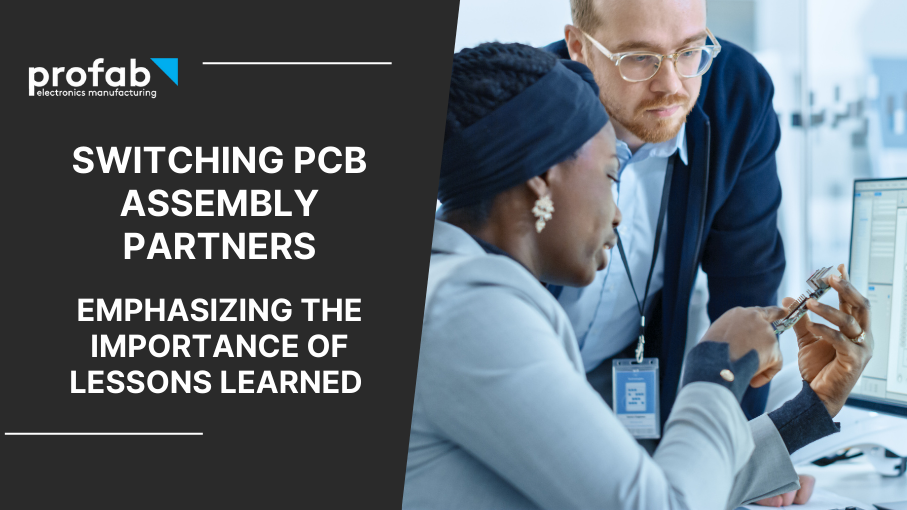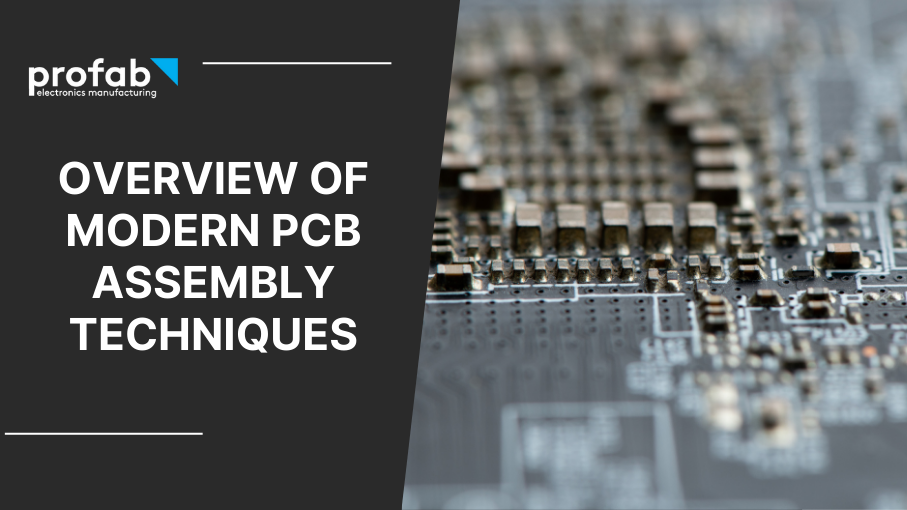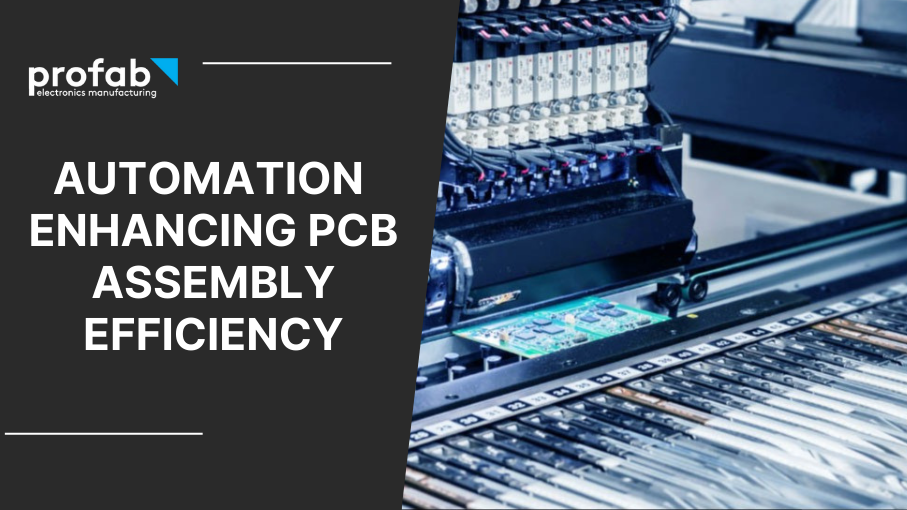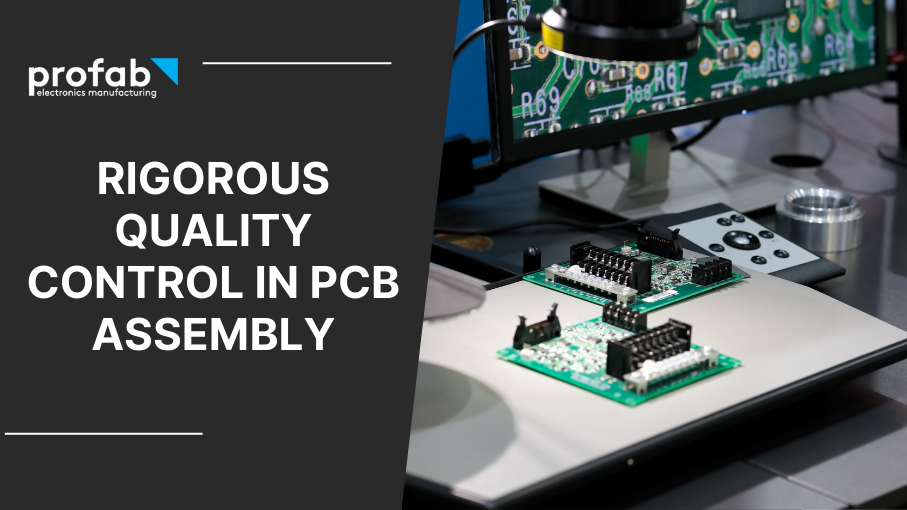
Navigating Transitions: Emphasizing the Importance of Lessons Learned When Switching PCB Assembly Partners
Harnessing the Power of Past Experiences: A Strategic Guide to a Smooth Transition, Building Trust, and Enhancing Efficiency with New PCB Assembly Partners through Effective Sharing of Lessons Learned
Transitioning to a new printed circuit board (PCB) assembly partner often incites a mix of emotions – optimism for the promise of improved services, enhanced capabilities, and perhaps more competitive pricing, blended with a touch of apprehension. This anxiety stems largely from the fear of the unknown and the risk of repeating past mistakes or losing hard-won efficiencies developed over time. However, these concerns can be substantially reduced by prioritizing one critical, yet frequently neglected, aspect of this transition: the effective transfer of "lessons learned" to the new partner.
Lessons Learned: The Gold Mine of Experience
In the world of PCB assembly, "lessons learned" is a term used to refer to the knowledge derived from past experiences. These experiences could be marked by success or failure and span the entire spectrum of the assembly process, from design to manufacturing, testing, and quality control. They are invaluable nuggets of wisdom that can profoundly impact a product's quality, functionality, and manufacturability, thereby acting as gold mines of experience.
Eliminating Repeated Errors
When you share the history of past mistakes with your new PCB assembly partner, including their causes and how they were resolved, you enable them to foresee similar pitfalls. By foreseeing potential issues, they can plan and implement strategies to prevent these mistakes from occurring. This proactive approach can lead to considerable savings of time and resources, and more importantly, it can significantly enhance the quality of the final product.
Improving Efficiency
Lessons learned are not restricted to the realm of mishaps. They also encompass successful strategies and innovations that have made processes more efficient or have improved the functionality of a product. By sharing these positive experiences with your new partner, you provide them with a head start, enabling them to implement these optimized practices right off the bat.
Fostering Trust and Collaboration
A transparent exchange of lessons learned is a testimony to your willingness to engage in open communication and collaboration. It sets the tone for a relationship based on trust, thereby laying the foundation for a strong and successful partnership.
Ensuring Effective Transfer of Lessons Learned
An essential aspect of the transition process is facilitating an effective transference of lessons learned. This process, however, requires a systematic approach. Here's a step-by-step strategy:
Document Every Detail
Begin by maintaining comprehensive documentation of all critical aspects related to PCB assembly. This documentation should be extensive and should cover every detail, no matter how minute it might seem. It should include what went wrong, what worked, and any modifications that led to better results. Remember, the smallest details can often have the biggest impact in the PCB assembly process.
Establish a Lessons Learned Repository
Create a centralized, accessible repository that consolidates all the lessons learned. This living database should be regularly updated and should serve as a go-to resource for your new partner. An organized database ensures that valuable insights from past experiences are not lost in the transition and can be readily used to inform future decisions.
Include Lessons Learned in Onboarding Process
The onboarding process for your new PCB assembly partner provides an excellent opportunity to introduce these lessons learned. By making these insights an integral part of the onboarding process, you ensure that they form the very foundation of your new partnership, setting the stage for a productive and mutually beneficial relationship.
Promote Open Communication
Fostering a culture where past successes and failures can be openly discussed is vital. Encourage regular meetings to exchange, discuss, and understand lessons learned. These meetings should be viewed not as a luxury, but as a necessity, as they can provide crucial opportunities for both parties to learn from each other's experiences and knowledge.
Analysis and Implementation
The new partner should do more than just understand past experiences. They should actively analyze these insights and determine how to implement the lessons learned in their processes to drive continual improvement. This active involvement in the process can help to ensure that the knowledge gained from past experiences is not only preserved but also effectively put to use.
Conclusion
The transfer of lessons learned when transitioning to a new PCB assembly partner is more than just a strategic move; it is an essential element of the process. By valuing and managing these lessons in a systematic way, companies can ensure a smoother transition that builds upon past experiences rather than starting from scratch. More importantly, they can help prevent the repetition of past mistakes, thereby setting the stage for a more productive and successful partnership.
About Profab Electronics
Profoundly embedded in the electronics manufacturing sector, Profab Electronics has been steadfast in its commitment to deliver excellence for over three decades. Our unparalleled experience, fortified by our stringent quality standards, positions us as a trusted partner in the realm of Electronics Manufacturing Services (EMS).
We're an ISO 9001 and AS9100 certified company, and our adherence to these globally recognized standards attests to our unyielding quest for quality. Our team comprises experts who hold formative training on the latest IPC standards, ensuring that we consistently produce electronic products of the highest caliber.
Our proficiency lies in PCB assembly, offering a spectrum of services ranging from Surface Mount (SMT) to Through-Hole Assembly. From the initial stages of prototyping to high volume pcb assembly, we offer comprehensive solutions to meet client requirements.
At Profab Electronics, we synergize our expertise and experience to deliver high-quality electronic products. Our unwavering commitment to quality, innovation, and customer satisfaction has established Profab Electronics as a leader in the electronics manufacturing industry. Trust us to bring your technological visions to life.
Latest Posts

Learn about our state-of-the-art Surface Mount and Through-Hole Technologies, sophisticated soldering processes, and rigorous quality control methods that define today's industry standards.

Learn about our advanced component placement, solder paste printing, and automated inspection systems that revolutionize the assembly process.

Discover how our adherence to ISO 9001 and AS 9100 standards, IPC solder training, and meticulous inspection processes ensure the precision and accuracy of every PCB we produce, underpinning our unwavering commitment to quality.